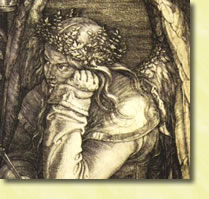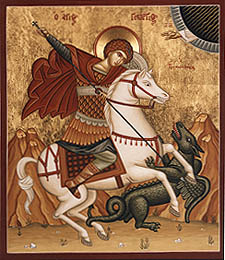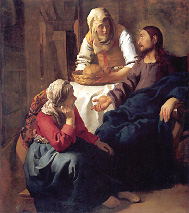Friends,
I was invited to give a lecture on November 17, 2021 at the Evangelical Theological Society 2021 meeting in Fort, Texas, on the subject of “An Anglican Reflection on the Filioque Controvery.” That lecture is now available here.
Friends,
I was invited to give a lecture on November 17, 2021 at the Evangelical Theological Society 2021 meeting in Fort, Texas, on the subject of “An Anglican Reflection on the Filioque Controvery.” That lecture is now available here.

 Around a month ago, Matthew Colvin, a minister of the Reformed Episcopal Church, provided a review of my recently published book Icons of Christ: A Biblical and Systematic Theology for Women’s Ordination. This is now the second time there has been a critique of my position from within the ACNA. About a year ago, there was a criticism of a short essay that Trinity Professor Grant LeMarquand and I had written entitled “Women in Holy Orders.” I had begun an initial series of responses to the Anglican Diocese of the Living Word, but work on another writing project (not about women’s ordination) has kept me away from my blog. I note at the beginning of this essay that Colvin’s review follows many of the same patterns as the original Diocese of the Living Word critique so there will be some repetition in my response.
Around a month ago, Matthew Colvin, a minister of the Reformed Episcopal Church, provided a review of my recently published book Icons of Christ: A Biblical and Systematic Theology for Women’s Ordination. This is now the second time there has been a critique of my position from within the ACNA. About a year ago, there was a criticism of a short essay that Trinity Professor Grant LeMarquand and I had written entitled “Women in Holy Orders.” I had begun an initial series of responses to the Anglican Diocese of the Living Word, but work on another writing project (not about women’s ordination) has kept me away from my blog. I note at the beginning of this essay that Colvin’s review follows many of the same patterns as the original Diocese of the Living Word critique so there will be some repetition in my response.
1) Colvin makes no real attempt at understanding what my position actually is:
My book is largely a response to arguments against women’s ordination, but (as with all books) there is a positive thesis as well. My fundamental thesis would be something like the following:
There is a reciprocal relationship between Trinitarian personalism and the creation of humanity as male and female in Genesis 1 and 2. The creation of humanity as male and female mirrors the equality and relationality of the Triune persons. This means not only that men and women are equal (no more hierarchical subordination between men and women than between Father and Son in the immanent Trinity), but that men and women are fundamentally oriented toward one another and need one another. There are no men without women; there are no women without men. This model of the relationality between men and women provides the fundamental pattern for the relationships between all human beings. As it is not good for the man to “be alone” (Gen. 2:18), so it is not good for human beings in general to be alone.
This has at least two implications.
Our identity as men and women and the relationality toward one another that implies is fundamentally constitutive of what it means to be human. Even apart from the relationship to our spouse in marriage (if we are married) all of us are either sons or daughters, brothers or sisters, nieces or nephews, aunts or uncles, etc. There is then no getting around our fundamental sexuality. Even outside of marriage, the fundamental distinction between man and woman (and our mutual orientation toward one another as male or female) is fundamental to who we are. None of us can be alone. All of us are in relationship to other people. And, most important, neither men nor women can say to one another, “I have no need of you.” Even outside the context of marriage, men and women relate to one another as the primary paradigm of what it means to be human – to be in relationship to another who is both other than the self, but also equal to the self.
The church is not then fundamentally a group of individuals who each do their own thing. Neither however is it a hierarchy where those in leadership positions “rule over” those at the bottom. Rather, the church is a community of both equality and mutuality in which none of the members can say to one another “I have no need of you,” but it is also a community in which those in leadership positions lead primarily by being servants to those whom they lead.
This means that Colvin’s criticisms that my position is “individualist” or “unable to oppose homosexuality,” or would lead to transgenderism, is not only fundamentally mistaken but is a radical misreading. A more plausible criticism would be that my position tends toward “communitarianism,” a critique leveled against people like Alasdair McIntyre and Michael Sandel. If that is the criticism, I plead “guilty as charged.”
(more…)

 Friends,
Friends,
Several years ago, I began publishing a series of essays on women’s ordination. Over time, these expanded into a book. Baylor University Press has now agreed to publish this book as Icons of Christ: A Biblical and Systematic Theology for Women’s Ordination. It is scheduled to be available for purchase on Nov. 1, 2020, and may be pre-purchased at either Barnes and Noble or Amazon.
Unfortunately for readers of my blog, that means that the original essays are no longer available. Fortunately, for all of those who have asked me over the last several years, “When will these ever be published as a book?,” there is now an answer.
Thank you to all of those who have encouraged me in this project over the last several years. Blessings especially to those women who have been encouraged by what I have written to pursue your own vocations, and to those men who have encouraged them.
Grace and Peace,
Bill


The Logical Fallacy of the False Dilemma has a number of other names: the false dichotomy fallacy, the either-or-fallacy, the fallacy of false alternatives, the fallacy of exhaustive hypotheses. The fallacy presumes that a particular situation or problem has only two exhaustive solutions or possible options, and that one must chose between them. The fallacy is endemic to political discussion: Either build a wall or be in favor of open borders! Allow no restrictions on the ownership of firearms or risk imminent death by home invasion, mass shooters, or government tyranny! If you don’t approve of gay marriage, you’re homophobic! If you allow “special rights” for gays, you’ll destroy the traditional family!
In theology, the fallacy of the false dichotomy has often been accompanied by conflation. In the case of the choice between the three options of historic Protestantism, Roman Catholicism, or Liberal Protestantism, advocates of each position have reduced the theological alternatives to only two options. For all his brilliance otherwise, Karl Barth infamously claimed that “natural theology” was the inevitable link between Roman Catholicism and liberal Protestantism, and that “natural theology” eventually led to the Third Reich. (Embrace the Reformation and reject “natural theology” or be a Nazi!) John Henry Newman claimed that “private judgment” was the common link between Protestantism and liberal theology, and that without a magisterium, one inevitably led to the other. (Accept the papacy or end up with subjectivity uncertainty!) In book after book, liberal Episcopal Bishop John Spong has repeatedly claimed that “fundamentalism” is the common link between historic Protestantism and Roman Catholicism. (Embrace liberal Protestantism or be a Fundamentalist!)
In the previous essay, I pointed out that the writers who wrote the Response endorsed a complementarian hermeneutic. In this essay, I will make the case that they also engage in the fallacy of the false dichotomy, and that this is illustrated by repeated conflation of alternative positions concerning women’s ordination.


I
n previous essays responding to the Anglican Diocese of the Living Word’s Response to Women in Holy Orders, I have claimed that the dividing issue has primarily to do with hermeneutics, not biblical interpretation. In this essay, I intend to have a more detailed discussion of the hermeneutical process itself, and how it functions in the Response, and why I find that problematic. In a later essay, I will discuss an alternative hermeneutic.
Oliver O’Donovan has a helpful discussion of the hermeneutical process in his book Self, World and Time: Ethics as Theology 1.1 The context of the discussion is Christian ethics, but insofar as the issue of women’s ordination is a concern about the practical application of Scripture – in light of what the Bible teaches, what should we do? – the concern is the same:
1) “A biblical story, command, or counsel presents us with a train of moral thought, a discursive argument that runs, though sometimes we need exegetical insight to make it explicit, from some A to some B, led by its practical question . . . and reaching some resolution.” That is, at the time the Bible was written, there was some particular reality or situation A; in light of A, the Biblical authors concluded that some action B is the appropriate form of response to this reality (discerning and obeying God’s will in this situation).
2) “That whole course of thinking, from A to B, is laid before our attention as we seek to fashion a course of thinking of our own, from some X to some Y, led by our own practical question, observing our own contextual restraints, and finally reaching our resolution to the matter that is our own view.” That is, given our own moral or practical issue that needs to be addressed (X), how does the Biblical process from A to B give us guidance to discern what is the proper Y in response to X?
3) O’Donovan is clear that the biblical path from A to B is not negotiable; it is fixed in the text. Nonetheless, “[i]nterpretation has to do with what is already the case about the meaning of Scripture; moral thinking [and other decisions of practical reason such as church order] is not about what is already the case, but about what to do next.” That is, exegesis is not hermeneutics; interpretation is not application.
4) “Obedience is a matter of how our own confession is to harmonize with the testimony of Scripture, and it is concerned to achieve a correspondence between the whole train of thought of the text from A to B and the whole train of thought from X to Y.” O’Donovan suggests that we express this in the formula [A→B]→[X→Y]. However, obedience is not simply a matter of taking up a conclusion in the manner of A→B →Y, which would shortcut the process of X→ Y; nor is it a simple matter of A → X → Y, working from some general principle or command overlooking how Scripture engages in its own process of what actions A might imply.

 T
T
his is the third essay in a series of responses to the Anglican Diocese of the Living Word’s “Response to Women in Holy Orders.”
In an essay I wrote a while ago, I laid out what I called the “Tradition Challenge.”
I have argued that Evangelical Complementarians and Catholic Sacramentalist opponents to women’s ordination represent innovations to the historic tradition. Their advocates insist that they do not, and are simply following the historic tradition. My challenge:
Provide an actual historical reference from the Christian tradition that corresponds to what I have called the Complementarian or Sacramentalist positions. It is not enough to provide some individual positive statement about women mentioned by a Patristic, Medieval, or Reformation author.
There has been a kind of response to the “Tradition Challenge” by four writers from the Diocese of the Living Word in their Response to the essay “Women in Holy Orders,” written by myself and Bishop Grant LeMarquand. They state:
[LeMarquand and Witt] claim that the historic reasons for opposition to the ordination of women depend on the presupposition of ontological inferiority. That is demonstrably untrue. The unifying reason, found in every source that we have examined, is the conviction that Holy Scripture forbids the ordination of women. This reason does not require the ontological inferiority of women, unless one concludes that Scripture teaches the inferiority of women (and it is our conviction that it does not).
In the “Tradition Challenge,” I laid out the “traditional argument” against women’s ordination, and provided evidence for each one of its key propositions:
The Ontological Deficiency Claim
(A) Women are less intelligent, more emotionally unstable, and more subject to temptation than men.
The Exclusion by Nature of Subordination Claim
(B) Ordination necessitates exercising authority over others, particularly teaching and speaking in an authoritative manner. Women cannot be ordained because they are necessarily subordinate to men, and therefore cannot execise authority in this manner. This is primarily an exclusion from women exercising any authority whatsoever over men, and only secondarily a specific exclusion from ordination.
The Inherent Correlation Claim
(C) Proposition (B) is a direct corollary or consequence of Proposition (A). Women are necessarily subordinate to men, and cannot exercise authority over them because of an ontological incapacity located in a deficiency in reason, emotional instability, and susceptibility to temptation. Because of this ontological deficiency, they cannot exercise authority over or teach men, and so cannot be ordained.
I concluded: “Any argument against women’s ordination that does not include all three propositions is not the traditional argument, but an innovation.”


In reading the Response of some writers from the Anglican Diocese of the Living Word to the essay “Women in Holy Orders,” written by Bishop Grant LeMarquand and myself, I was reminded of an interchange between Anglican apologist C. S. Lewis and Episcopal theologian Norman Pittinger seventy years ago. Lewis complained that Pittinger had seriously misrepresented what he had written in his book Miracles: “How many times does a man need to say something before he is safe from having said exactly the opposite?”1 How many indeed?
Are You Now or Have You Ever Been a Post-modernist?
The writers of the Response apparently think that Bishop Grant LeMarquand and myself are post-modernists. They ask “What if progressive theologians are actually reading a dualistic, detrimentally hierarchical and patriarchal structure into the text before deeming the text void for consideration?” They refer to a “linguistic turn” that “results in the idea that an authoritative interpretation of a text is not possible,” and to a “new consciousness of pluralism, ambiguity, and hope.” Their next sentence reads: “Several hermeneutical factors of this type are at play when Drs. Witt and Marquand (sic) argue against what they believe to be the conservative position on the ordination of women” (p. 8).
Of course, neither I nor Grant LeMarquand believe that Scripture contains a “dualistic, detrimentally hierarchical and patriarchal structure.” We would categorically reject such an interpretation of the Bible. Neither do we believe that an authoritative interpretation of a text is “not possible.” We wrote: “Most of all, we contend that there is a substantial body of scriptural reasoning and theological argument in favor of ordaining women as priests. . . . This scriptural witness leads us to believe that the ordination of godly women as leaders in Christ’s church should continue to be authorized . . .” To be clear, if we thought that an authoritative interpretation of a text is “not possible,” it would make no sense for us to claim that “this scriptural witness leads us to believe . . .”

In a comment on the essay by myself and Bishop Grant LeMarquand, “Women in Holy Orders,” someone named Stanislaw referred me to an essay by Sarah Coakley, entitled “In Persona Christi”: Gender, Priesthood and the Nuptial Metaphor”:
“I was wondering what would you make of Bonaventure’s argument that the priest must be male. Sarah Coakley in her “In Persona Christi. Gender, Priesthood and the Nuptial Metaphor” paper (p. 149, pdf available here:) refers to this argument when she discusses Sarah Butler’s approach.”
My response was too long to put in a comment.
Stanislaw,
I apologize that it has taken me so long to get back to you. Your comment came in the midst of end of the semester paper grading.
Thank you for bringing my attention to this essay by Sarah Coakley as well as the debate between Dennis Ferrar and Sara Butler. I had not been aware of either the Coakley essay or the debate. However, I do own a copy of Sara Butler’s The Catholic Priesthood and Women: A Guide to the Teaching of the Church (Hillebrand Books, 2007), which I consider to be the definitive defense of what I have called the “new” Roman Catholic argument against the ordination of women. Butler makes one reference to Bonaventure in this book, which I had marked, but missed when I went back to write what became the chapter in my book on the topic of the representative role of Christ as acting in persona Christi. Her entire discussion is only a paragraph, which is likely why I missed it on a second reading.
(more…)

 A couple of years ago, several bishops of the ACNA approached Grant LeMarquand, fellow Professor at Trinity School for Ministry, former Bishop in the Horn of North Africa, and current interim Bishop for the Diocese of the Great Lakes in the ACNA, and myself with the request to write a short summary of the biblical and theological case for women’s ordination to the priesthood (presbyterate). We were asked to keep this as short as possible; initially ten pages was suggested, but the final copy was still only 22 pages, plus bibliography. At that length, we could not attempt a complete argument, but only a summary, which, of course, meant that some concerns could receive only cursory attention, and even where a bit more detail was given, only a few essential points could be mentioned. One of the purposes of the attached bibliography was to point people in the direction of further resources to address some of the questions that such a short summary inevitably would raise.
A couple of years ago, several bishops of the ACNA approached Grant LeMarquand, fellow Professor at Trinity School for Ministry, former Bishop in the Horn of North Africa, and current interim Bishop for the Diocese of the Great Lakes in the ACNA, and myself with the request to write a short summary of the biblical and theological case for women’s ordination to the priesthood (presbyterate). We were asked to keep this as short as possible; initially ten pages was suggested, but the final copy was still only 22 pages, plus bibliography. At that length, we could not attempt a complete argument, but only a summary, which, of course, meant that some concerns could receive only cursory attention, and even where a bit more detail was given, only a few essential points could be mentioned. One of the purposes of the attached bibliography was to point people in the direction of further resources to address some of the questions that such a short summary inevitably would raise.
The document was released only to the College of Bishops, not publicly. The primary reason for this, as an ACNA bishop wrote to me in email, was that the bishops who requested it “didn’t want your work to begin another round of a ‘T I T for T A T’ debate on the blogs.” Both Bishop Grant and I have been frustrated that what we wrote was not made publicly available, but we are also quite aware of the low level of discourse on the internet. As we wrote in the original essay, “In producing this statement we have no desire to be contentious. Our desire is simply to uphold what we believe to be a biblical and godly practice.” (more…)

 The following essay was written by Trinity School for Ministry Professor of Missions Bishop Grant LeMarquand and myself at the request of the bishops of the ACNA in August 2018. The bishops asked us not to release the document publicly because they wanted to avoid “another round of a ‘T I T for T A T’ debate on the blogs.” Recently, the document was released along with an accompanying “Response” by the Anglican Diocese of the Living Word (ACNA) without notification to either Bishop Grant or myself. Given that the “blog debate” has already become a reality, there seems little point in holding onto the essay so it appears below. I also intend to respond to the “Response,” likely in more than one essay.
The following essay was written by Trinity School for Ministry Professor of Missions Bishop Grant LeMarquand and myself at the request of the bishops of the ACNA in August 2018. The bishops asked us not to release the document publicly because they wanted to avoid “another round of a ‘T I T for T A T’ debate on the blogs.” Recently, the document was released along with an accompanying “Response” by the Anglican Diocese of the Living Word (ACNA) without notification to either Bishop Grant or myself. Given that the “blog debate” has already become a reality, there seems little point in holding onto the essay so it appears below. I also intend to respond to the “Response,” likely in more than one essay.
A Biblical and Theological Defense of the Case for Allowing Women to Continue to be Ordained as Presbyters in the Anglican Church of North America
The Rev Dr. Grant LeMarquand and Dr. William G. Witt
On September 7, 2017, the ACNA College of Bishops stated:
Having gratefully received and thoroughly considered the five-year study by the Theological Task Force on Holy Orders, we acknowledge that there are differing principles of ecclesiology and hermeneutics that are acceptable within Anglicanism that may lead to divergent conclusions regarding women’s ordination to the priesthood. However, we also acknowledge that this practice is a recent innovation to Apostolic Tradition and Catholic Order. We agree that there is insufficient scriptural warrant to accept women’s ordination to the priesthood as standard practice throughout the Province. However, we continue to acknowledge that individual dioceses have constitutional authority to ordain women to the priesthood.
Although it had been hoped that their statement would bring a certain amount of peace to the ACNA, which has been divided on the issue of women’s orders, in fact the statement generated much heat in the blogs. This paper may also generate some heat simply by virtue of its topic. This, however, is not its purpose. In producing this statement we have no desire to be contentious. Our desire is simply to uphold what we believe to be a biblical and godly practice.
The College of Bishops rightly stated that there are different hermeneutical principles being used by differing groups within the church. This paper, we hope, will make clear that we believe that there is a sufficient weight of evidence in scripture, no persuasive tradition against, and persuasive theological reasons to affirm, that women are called and gifted by God for ordained ministry in the church. The bishops also stated that the ordination of women is “a recent innovation.” We would argue that women were serving in ministry positions in the apostolic period. Ordaining women is “a recent innovation” only because the practice of ordaining women was lost to the church and has now been revived. At the same time, any appeal to the “tradition of the church” as an argument against ordaining women should honestly recognize the historical reasons why women were not ordained, and that recent arguments against the ordination of women do not reflect this historical position, but are themselves recent innovations. Further, the bishops stated that there is “insufficient scriptural warrant to accept women’s ordination to the priesthood as standard practice throughout the Province.” We take this statement to mean that it is not the opinion of the bishops that women’s ordination be imposed on all dioceses. We concur. If some bishops and dioceses are not convinced that women should be ordained, those bishops and dioceses should not be forced to do so.
The purpose of this paper, therefore, is not to attempt to coerce any diocese into the practice of ordaining women as presbyters. This statement acknowledges that the reasons given for not ordaining women are coherent (although we disagree with them) and that it has the weight of much (but certainly not all) of the history of the church on its side. What the signers of this paper contend is that the argument in favor of ordaining women is also coherent and that there are important arguments in its favor. Most of all, we contend that there is a substantial body of scriptural reasoning and theological argument in favor of ordaining women as priests. This statement will not present every argument which could be made: substantial arguments have been made elsewhere (see the short bibliography attached). Our statement is meant to be merely an outline of the major arguments, especially those from scripture. This scriptural witness leads us to believe that the ordination of godly women as leaders in Christ’s church should continue to be authorized in ACNA dioceses that have decided, or may in future decide, in favor of this policy.
Because this study is simply an outline of the pro-women’s ordination argument, there may be many questions raised which could be answered if there was room for more detail. We commend the bibliography attached as a collection of writings which may help those interested to gain further insight. We would remind any who may comment on this paper to remember that this subject is a sensitive one, both for those in favor of women priests and for those against. By all means, arguments can and should be raised, but arguments should be made against ideas, not people. There is no excuse for dismissing another person’s case without evidence. The use of arguments ad hominem (the logical fallacy which attacks the person rather than the position – a form of argumentation which, sadly, have become prevalent on the internet) should be resisted.
